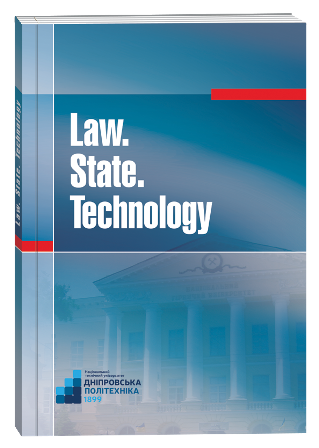THE CONCEPT OF "PRINCIPLE OF LOCAL SELF-GOVERNMENT" IN THE ADMINISTRATIVE-LEGAL DOCTRINE OF UKRAINE
DOI:
https://doi.org/10.32782/LST/2023-4-5Keywords:
administrative problems of municipal law, local self-government, municipal administration, territorial collective, principles of local self-government in Ukraine, axiology, administrative axiologyAbstract
The purpose of the article is to propose the concept of "principle of local self-government" for its application in the administrative doctrine of Ukraine. It is formulated that the "principles of local self-government" is a system of provisions defined in the sources of administrative law, on the basis of which normative regulation of the organization and functioning of local selfgovernment in Ukraine is carried out. The main characteristics of the concept of "principles of local self-government" in administrative law include the following: autonomy and independence; legality and accountability; participation of members of the territorial community; balance. It is summarized that the understanding and critical evaluation of the recommendations formulated during the times of the USSR is of crucial importance for the preservation of democratic values, strengthening of public trust and adaptation to the needs of modern Ukrainian society. This contributes to the constant improvement and strengthening of public authorities at the local level, as well as to the modernization of management practice. It is emphasized that in the context of the study of the principles of local self-government, it is important to take into account that in Soviet times, local self-government did not exist in its modern, democratic sense. After the declaration of independence of Ukraine, it turned out that local self-government is not only a new phenomenon, but also has an essence that needs to be analyzed as soon as possible in order to effectively support the municipal reform. In the historical context, it should be noted that local self-government in Ukraine existed before the Soviet period, and for some time in some localities it fully met the European standards of that time (in particular, when Magdeburg law was applied). However, it should be recognized that democratic local self-government on the territory of Ukraine in the period from the beginning of the 20th century to the declaration of independence was extremely limited or, perhaps, completely absent.
References
Авер’янов В.Б. Нова доктрина українського адміністративного права на етапі становлення. Актуальні проблеми держави і права. 2007. Вип. 35. С. 10–16.
Лук’янова Г. Роль та значення принципів права у формуванні сучасного адміністративного права. Вісник Національного університету «Львівська політехніка». Серія: Юридичні науки. 2020. № 1 (25). С. 99–106.
Пухтецька А.А. Європейські принципи адміністративного права та їх запровадження в законодавстві України: автореф. дис. … канд. юрид. наук. К., 2009. 17 с.
Шарая А.А. Принципи адміністративно-процедурного права: питання теорії та практики: автореф. дис. … д-ра юрид. наук. Запоріжжя, 2020. 40 с.
Mishyna N. V. Role of local and regional authorities in the implementation of ECtHR judgments: bibliographical review. Юридичний вісник. 2023. № 3. С. 146–151.
Mishyna N. V. Decentralization: European court of human rights’ judgements implementation. Наукові праці Національного університету «Одеська юридична академія». Одеса, 2023. Т. 32. С. 94–99.
Qaracayev C. Axiological Function оf The Constitutional Court оf The Republic оf Azerbaijan. Juris Europensis Scientia. 2022. № 3. C. 135–138.
Qaracayev C. Local Self-government in the Republic of Azerbaijan:Problems of the Administrative Supervision. Науковий вісник Міжнародного гуманітарного університету. Сер.: Юриспруденція. 2022. № 57. C. 24–27.








